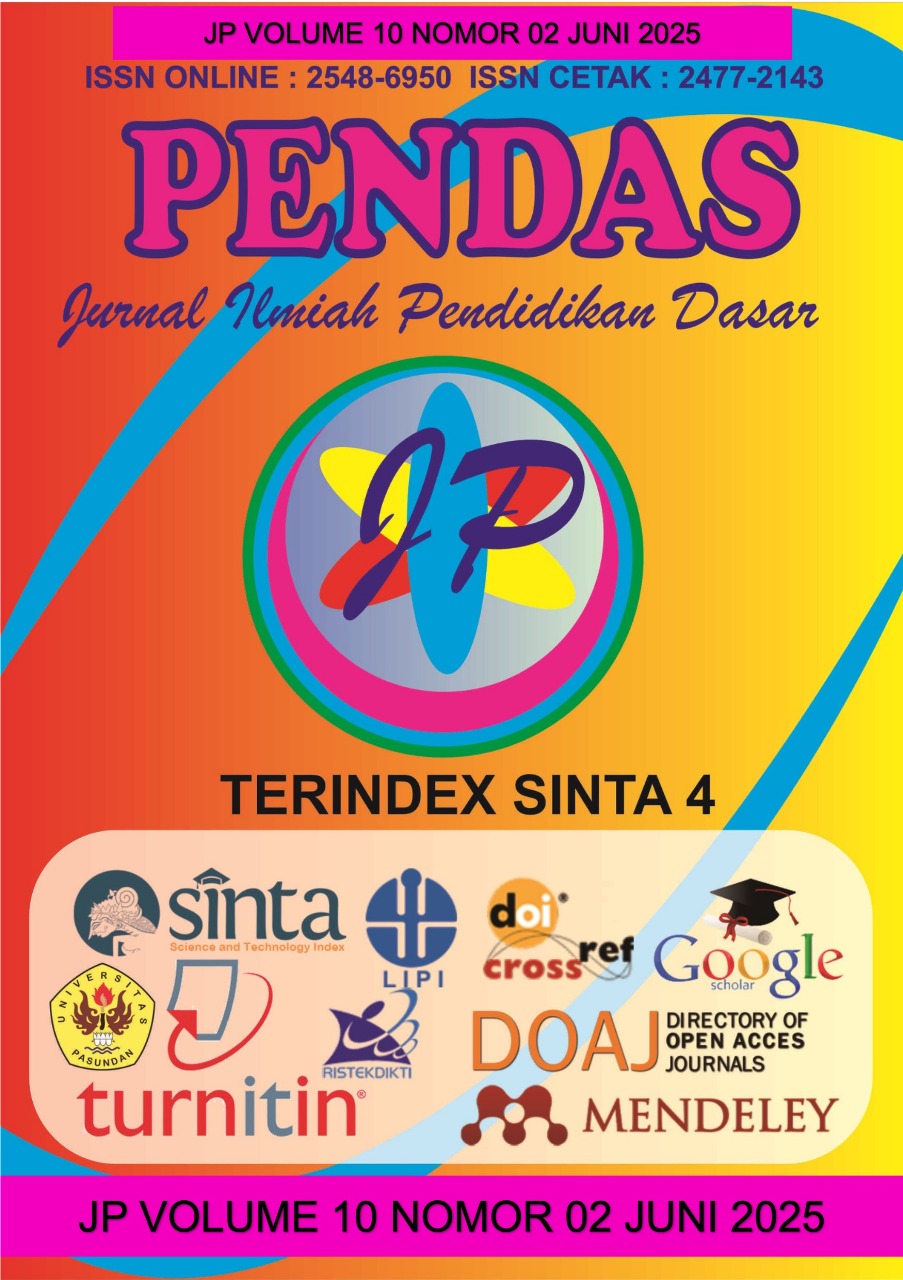HAMBATAN EPISTEMOLOGI SISWA DALAM MENYELESAIKAN SOAL SISTEM PERSAMAAN LINIER TIGA VARIABEL
DOI:
https://doi.org/10.23969/jp.v10i2.25827Keywords:
epistemological obstacle, conceptual understanding, systems of linear in three variabelsAbstract
This study aims to describe students’ epistemological obstacles in solving problems related to systems of linear equations in three variables. This is a qualitative study conducted at MA Negeri 02 Tulang Bawang Barat involving 27 tenth-grade students, with three students selected as research subjects representing high, sedang, and low levels of mathematical problem-solving ability. The triangulation used in this research includes both source and technique triangulation. Data collection techniques consisted of tests, interviews, and documentation. Interview sources included both students and teachers. The results show that most students experienced various obstacles, including difficulties in understanding the symbolic meaning of variables, errors in applying the substitution and elimination methods, and limitations in interpreting solution results. These obstacles generally stem from an incomplete understanding of basic algebraic concepts and the interrelationships between equations in the system. These findings have important implications for the development of instructional strategies that emphasize strengthening conceptual understanding and students' mathematical thinking processes.
Downloads
References
Rahman, N. A. (2024). Kendala Guru dalam Mewujudkan Lingkungan Belajar yang Kondusif pada Sekolah Penggerak (Doctoral dissertation, Universitas Jambi).
Aulia, N. I., & Handayani, H. (2018). Peningkatan Pemahaman Konsep Matematika Siswa Sekolah Dasar Mellaui Model Pembelajaran Teams Games Tournament (Tgt). Jurnal silogisme: kajian ilmu matematika dan pembelajarannya, 3(3), 116-120. https://doi.org/X.24269/silogisme.v3i3.1475
Rahmah, B. N., & Maarif, S. (2021). Analisis Epistimologi Obstacles Terhadap Siswa Smp Kelas Vii Dengan Materi Statistika (Penyajian Data). Jurnal Matematika UNAND, X(4), 5X-518.
Dewi, F. C., Mahani, P., & Wijayanti, D. (2021). Hambatan Epistemologi Siswa Dalam Materi Persamaan Eksponen. Jurnal Equation: Teori dan Penelitian Guruan Matematika, 4(1), 1-14.
Elfiah, N. S., Maharani, H. R., & Aminudin, M. (2020). Hambatan epistemologi siswa dalam menyelesaikan masalah bangun ruang sisi datar. Delta: Jurnal Ilmiah Guruan Matematika, 8(1), 11-22.
Hidayah, A., & Maemonah, M. (2022). Ah Analisis Hambatan Belajar Siswa Kelas IV Pada Mata Pelajaran Matematika. Symmetry: Pasundan Journal of Research in Mathematics Learning and Education, 7(2), 232-240.
Sa’adah, L. L. (2022). Hambatan Belajar Terkait Kemampuan Pemecahan Masalah Matematis Siswa dengan Model Flipped Classroom pada Materi Penyajian Data (Doctoral dissertation, Universitas Islam Sultan Agung Semarang).
Meliani, I., Mulyani, E., & Muslim, S. R. (2024). Hambatan Epistemologi Siswa dalam Menyelesaikan Soal Lingkaran Ditinjau dari Self-regulated Learning. Indiktika: Jurnal Inovasi Guruan Matematika, 7(1), 71-84.
Prameswari, D. A., & Muniri, M. (2023). Karakteristik Berpikir Intuitif Siswa dalam Menyelesaikan Soal Matematika Ditinjau dari Kemampuan Matematika. Lattice Journal: Journal of Mathematics Education and Applied, 3(1), 79-91.
Ilany, B. S., & Margolin, B. (20X). Language and mathematics: Bridging between natural language and mathematical language in solving problems in mathematics. Creative Education, 1(03), 138.
Jusra, H., & Liddini, U. H. (2022). Analisis Kemampuan Pemahaman Matematis Ditinjau dari Self-Regulated Learning. Edumatica: Jurnal Guruan Matematika, 12(03), 256-263.
Nuraini, F., Agustiani, N., & Mulyanti, Y. (2023). Analisis kemampuan berpikir komputasi ditinjau dari kemandirian belajar siswa kelas X SMK. Jurnal Cendekia: Jurnal Guruan Matematika, 7(3), 3067-3082.
Adelina, R., Sepriyanti, N., & Khaidir, C. (2023). Analisis Kemampuan Pemahaman Konsep Matematis Siswa Pada Materi Bentuk Aljabar Ditinjau Dari Self Regulated learning. Jurnal Guruan Matematika (JPM), 9(1), 46-50.
Downloads
Published
Issue
Section
License
Copyright (c) 2025 Pendas : Jurnal Ilmiah Pendidikan Dasar

This work is licensed under a Creative Commons Attribution 4.0 International License.














































